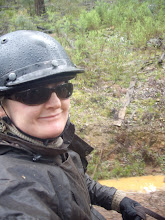Wednesday, September 5, 2012
Much Ado About Substance
HERE the Los Angeles Review of Books gives science fiction writing the once over. Fantasy gets a slap on the wrist too. Reviewer Paul Kincaid covers in depth the short stories chosen for the three biggie 2012 Best of the Year anthologies, namely Gardener Dozois's The Year's Best Science Fiction: Twenty-Ninth Annual Collection, Richard Horton's The Year's Best Science Fiction and Fantasy:2012, and Nebula Awards Showcase 2012.
Best of is a loaded term that is always going to provoke debates - or at least it should, if we want to keep our genre exciting and relevant. Plucking certain mortals from the mud below and elevating them to a celestial position high above others is always going to pit one person's love of straightforward, ideas-based fiction without any new-fangled experimental bells and whistles against another person's love of escapist entertainment versus a third person's loathing of mundane prose and a fourth person's hankering for more interesting story structures. Your OMG, it's the most blooming awesome story ever in the history of the universe, and if you don't agree with me you're stupid might be my meh! Talk of spheres of influence to rival the old Cold War carving up of the world into political blocks, whisperings about competent but bland talent being helped along by friends in high places, complaints about uniform editorial tastes and grumblings about timid writers resorting to backwards-looking tropes are bound to erupt, and once again, your personal writerly or readerly POV will kick in and inform your position in the debate. All of this, as long as it's done within civilized conventions, is allowable and necessary. Freedom of expression and transparency are always desirable, although one should remember (geek alert) that much like the command of a starship, an anthology is not a democracy.
There's a lot to cogitate in Paul Kincaid's article of the good, bad, maybe, and absolutely spot-on sort. Basically, he seems to think that contemporary science fiction writing is much like a cardboard character of old who is bound for a tragic ending, picturesquely languishing upon a chaise longue in a perpetual state of exhaustion and ennui as he or she sighs and awaits the final curtain.
I do hope he's wrong.
Subscribe to:
Post Comments (Atom)










3 comments:
Thanks for the link to this interesting article. I'd read quite a few of the stories he mentioned, so that helped me to get a feel for how he responds to stories.
Although I didn't agree with a lot that he said, it's food for thought that if we write about the future it reflects our attitude to that future. I remember when I was young I thought of the future as full of possibility and hope, but I have a sense that even the young are not optimistic these days.
I sense that many people now regard the future as unknowable, as he says.
On the other hand, I don't think it's a legitimate criticism to complain about writers using traditional forms of sf and fantasy.
I'm glad you enjoyed it, parlance.
I was mostly interested in his comments about the future too. It's often said that sf isn't really about the future, but about the time it is written in, relecting the dreams and fears of each generation. I think that's true to a point, but simplistic. Some people, maybe most, are indeeded grounded in their own era, but others do try to push their minds forwards into the unknown up ahead. Perhaps, at the moment,this future-looking is manifesting itself as gloominess, dystopia-driven and weird fiction, but like all things, this too will pass. As we all settle into the present technology and adjust our relationships to suit, writers will once again be able to hypothisize about the future with much more confidence. Not that I entirely agree that sf writers are not doing that now, but yeah, perhaps they do need to do it with more optimism.
The rest of his reveiw made me uneasy at first, because I'm as guilty as the next writer of using old stories and styles to brace a work, though I always think I'm bringing something new to the table. I may, of course, be wrong. However, I too came to the conclusion that writers have always harked back to the great works of long dead scribes and previous styles. Most art is based on ideas that have gone before mixed and presented in hopefully new ways. Besides,what a reviewer who reads for a living might yawn over, readers who are reading for a myriad of different reasons might find delightful. I personally enjoy clever new interpretations of old tropes, and liked some of the stories he branded as tired.
Anyway, as said, his article was good food for thought.
Indeeded indeed - hah! :)
Post a Comment